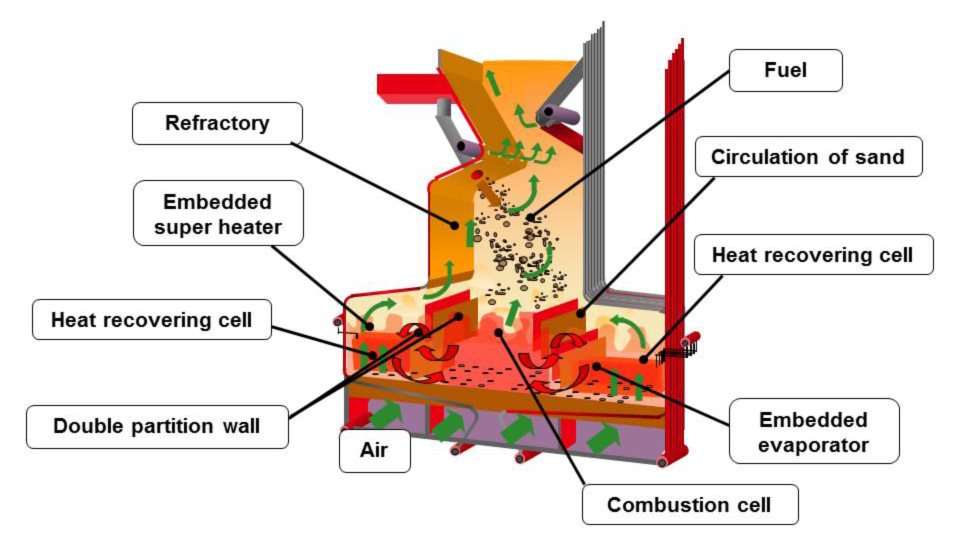Kawasaki Delivers RPF and Biomass-fired Boiler to Korea's Jeonju Paper
Mar. 14, 2019

Tokyo, March 14, 2019 — Kawasaki Heavy Industries, Ltd. announced today that it has completed delivery of an RPF*1 and biomass-fired boiler ordered by Samchully ES Co., Ltd., a Korean engineering firm based in Seoul, which then supplied the boiler to Jeonju Paper Corporation, a leading paper manufacturing company in Jeonju City, Korea.
The delivered unit is an internal circulation fluidized bed boiler that burns RPF and wood chips as fuel. It supplies 131 tons of high-temperature, high-pressure steam per hour, the largest capacity in its class ever manufactured by Kawasaki. Jeonju Paper has introduced the new internal circulation fluidized bed boiler as part of upgrades to the power generation system within its plant. Steam generated by the boiler and electricity created by the steam turbine power generation system will be used to operate the company's paper mill, with surplus power being sold to a local power supplier. Samchully ES, which was contracted to carry out the facility upgrade, has completed the necessary installation work and commissioning, and the boiler continues to operate steadily. Including this latest delivery, Kawasaki has delivered a total of three boilers of this type to Korean customers.
Kawasaki's internal circulation fluidized bed boilers can use numerous types of fuel and are capable of providing the high-temperature, high-pressure steam needed for high-efficiency power generation operations. Compatible fuel types include fuels made from solid waste such as RDF*2 and RPF, waste plastic, biomass fuels such as PKS*3, gumwood, waste wood and wood chips. This boiler features combustion and heat recovering cells that divide the fluidized bed portion into separate partitions, and its internal structure allows the fuel and bed materials to circulate from the combustion cell to the heat recovering cells by varying the velocity of airflow. By separating combustion gas and bed material flows, this design enables stable and sustained burning of fuels containing chlorine, a substance that creates the risk of problems such as corrosion and efficiency decreases within boiler heat exchanger tubes, and of alkaline fuels containing constituents such as potassium and sodium. As a result, it is possible to use refuse-derived fuels with high chlorine content and high-alkalinity biomass fuels, which have seen very little use until now.
Furthermore, as energy demand continues to grow around the globe, waste-to-energy power generation using waste plastic and other fuels made from solid waste, as well as renewable-energy power generation using biomass fuels, is expected to continue spreading, and demand for this type of boiler has been increasing. Amid such industry transformations, Kawasaki will continue to globally pursue efforts related to internal circulation fluidized bed boilers and other areas of the energy field.
| *1 RPF: | Refuse paper and plastic fuel. Solid fuel consisting primarily of waste paper and waste plastic, industrial waste materials that are difficult to recycle. |
| *2 RDF: | Refuse-derived fuel. Solid fuel consisting primarily of combustible municipal solid waste. |
| *3 PKS: | Palm kernel shells. Fuel consisting primarily of palm kernel shells collected from palm fruit. |

Contact
If you need more information about our business,
please feel free to contact us.





